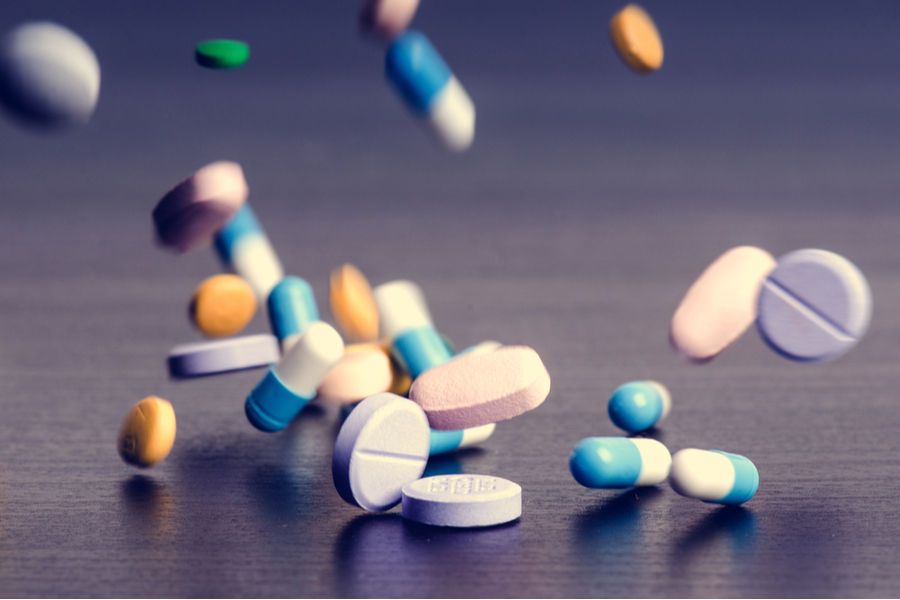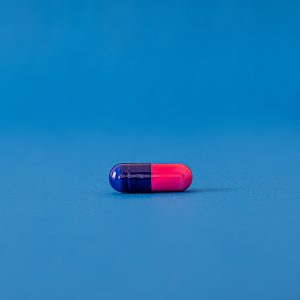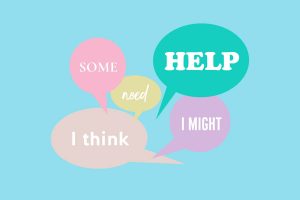The Darker Side of Happy Pills

How are you feeling?
I don’t know about you but I’ve been feeling a little down recently. I’m having some trouble sleeping which means I’m tired almost all the time. I feel like I’m suffering from a sort of low-level anxiety throughout the day. At times I feel like everything is hopeless. It only takes the slightest thing and I’m on the verge of tears, I can’t even make it through an episode of Bake Off without welling up. I’m grumpy and snippy, a total nightmare to live with. What the fuck is going on?
Sound familiar?
Even before the pandemic hit a lot of us were having trouble coping with life, and still are now the worst appears to be over. And I mean, a lot of us. Figures from 2017 to 2018 show that over 17.3 million people in the UK were prescribed antidepressants, that’s over 17% of the adult population. But it hasn’t always been like that. Since 2000 the usage of these drugs has gone up by more than 170%. Of those people currently taking antidepressants, more than a half have been on their medication for more than two years. We’re a nation of ‘happy pill’ poppers. For many people they’re perceived as a lifeline, a Godsend, mummy and daddy’s little helpers, keeping them on the right side of the coping/not coping line. We gobble up more antidepressants than any other type of medication, which is depressing in itself.
‘The problem is GPs aren’t well set up to deal with human distress,’ says Mark Horowitz, a clinical research fellow at University College London, who conducted the Wise-Use Study – looking at the benefits and potential harm antidepressants have on patients. ‘They’re very good at managing blood pressure and diabetes but are not well equipped to deal with people’s more existential problems. That’s why there’s been so much prescribing. They only have a few minutes with a patient, there are long waiting lists for talking therapies, people’s lives are difficult, there are no obvious solutions and so a lot GPs reach for antidepressants, often without knowing all the information that should come into play in their decision making, the information that should also be conveyed to their patients. That should make them think more carefully about this particular course of long-term treatment.’
Horowitz has a particularly personal reason for his research into the true impact of these medications.
‘When I was at medical school I had what I would now see as an existential crisis,’ he explains. ‘I turned to a GP and they prescribed me an antidepressant and told me that would help. That’s what I had been taught in my lectures so I was willing to try it. I ended up staying on them for 17 years. During that period of time, I was diagnosed with narcolepsy because I was tired all the time. I asked at various times if it could be the medication I was on and they always reassured that it couldn’t cause side effects like that. My tiredness got progressively worse and started to cause me to have memory and concentration problems. I was then given more drugs for that, so I ended up on quite a few psychiatric medications. At some point, as things got worse, I wondered whether or not the medications might have been contributing to my condition despite what my doctor was saying.”
The side effects of withdrawal
He decided to try to come off the pills. “In my own very nerdy way, I went and read all the papers and research about coming off antidepressants and most of the official literature said you could come off in two to four weeks. Halve your dose, maybe halve it again and then stop. Then I came across a lot of blogs and discussion groups online where people talked about their process of coming off their drugs, and they were giving a very different story, they were saying you really need to come off over months and sometimes years especially if you’ve been on them for a long time.” Horowitz decided to try something in the middle. “I came off over about four months, but it didn’t go well. I ended up feeling terrible, terrible in a way that I’d never felt terrible before. I would wake up panicking, I had serious anxiety for the first time in my life. I had trouble sleeping. I felt dizzy. I felt absolutely awful. For the first time in my life, I actually felt suicidal because I felt so bad. I didn’t know quite what to do. I knew it must have something to do with coming off the medication. In the end, I had to restart the antidepressants.’
Sadly, this experience isn’t a rare exception. Research suggests that more than half (56%) of people who attempt to come off antidepressants will experience withdrawal effects and of those, nearly half describe the effects as being severe. It’s not uncommon for these effects to last for weeks or even months. However, you might not know this from the information readily available out there; on the NHS website under the section Coming Off Antidepressants, it advises patients to talk to their doctors before ceasing their medication and to avoid stopping taking the antidepressants suddenly. It then simply goes on to say. ‘Once you’re ready to come off antidepressants, your doctor will probably recommend reducing your dose gradually over several weeks – or longer, if you have been taking them for a long time. This is to help prevent any withdrawal symptoms you might get as a reaction to coming off the medicine.’ What it doesn’t say is that typical antidepressant withdrawal reactions might include, ‘increased anxiety, flu-like symptoms, insomnia, nausea, imbalance, sensory disturbances, and hyperarousal. And potentially dizziness, electric shock-like sensations, brain zaps, diarrhoea, headaches, muscle spasms and tremors, agitation, hallucinations, confusion, malaise, sweating and irritability.’ (Warner, Bobo, Warner, Reid, & Rachal, 2006, Healy, 2012). Which can, for some people, make normal functioning almost impossible.
A lack of knowledge
According to Horowitz, it’s not just patients who might be unaware of the possible range of side effects that can occur during withdrawal. ‘The average psychiatrist is ill-informed on this topic, they may not even be aware of all the possible withdrawal symptoms or the difficulties associated with stopping. This can lead to the very unfortunate circumstance of patients complaining of quite severe symptoms and doctors not believing that its caused by withdrawal, not because of any malevolence on their part, simply because they haven’t heard of it and it sounds absurd to them because they’ve been taught that these drugs are largely benign and couldn’t cause such severe reactions,’ he explains. ‘This can leave patients feeling not heard and dismissed. Another problem that can arise from this lack of knowledge is that some doctors won’t recognise the difference between a reaction to the withdrawal from the medication and a relapse of the initial condition and so will put people back on the drug. That’s what happened to me.’
The question is, if there was more research and education around the possible perils of coming off antidepressants, would GPs prescribe less and would the general public be less inclined to insist on them?
‘It’s very complicated. The Royal College of Psychiatrists has just published the guidance on how to come off antidepressants safely that I’ve written with some colleagues. This has been supported by the Royal College of General Practitioners and I hope that it will lead to a step-change in the way people come off their medication.’ He continues, ‘It’s probably even more important when it comes to prescribing. I would hope that GPs would prescribe these drugs more discerningly based on increased knowledge about these problems. I also think it should be mandatory that for true informed consent, patients should be made aware of the types of withdrawal symptoms associated with these medications.’
Thoughts on therapy
So, what if someone finds themselves feeling desperate and unable to cope? If antidepressants aren’t necessarily the magic pills we’d hoped they might be, what should we be doing?
‘In studies on the effectiveness of talking therapies, it’s been shown that people tend to keep on improving after treatment,’ says Horowitz. ‘Other things that also might be effective are things like social prescribing.’
Social prescribing, for anyone who’s not aware of the term, is where GPs or nurses refer people to a range of local, non-clinical services. These services are typically provided by voluntary or community organisations and can include things like gardening groups, befriending services, book clubs, cooking classes and sports activities. There’s increasing evidence that social prescribing can lead to a whole range of positive health outcomes, including helping to lower levels of depression and anxiety.
What would he say to people who are currently on antidepressants? ‘I would say, above everything else, you shouldn’t stop them suddenly, that is the way that’s most likely to cause withdrawal symptoms. I would suggest they talk to their GPs about the benefits and the potential harms of their medication and make a decision about what’s the best thing to do. If they do want to come off the medication, the key thing is to do it very slowly and over a long period of time, maybe many months or, in some cases, years. What people should understand is that feeling down or anxious is a part of normal human life, it’s often a response to our current circumstances and, more often than not, the best solution is not medication.’
If you’d like to help support Mark’s Wise-Use Study to help us better understand how common, long-lasting and severe the withdrawal symptoms are for people stopping antidepressants you can make a donation at the Virgin Money giving website here













